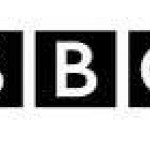- Settore: Broadcasting & receiving
- Number of terms: 5074
- Number of blossaries: 1
- Company Profile:
The largest broadcasting organisation in the world.
A federally funded program administered at state level to provide medical benefits and healthcare for some low-income people.
Created by amendments to the 1965 Social Security Act, it applies only to certain categories of people eligible for welfare programs. These include the old, the blind and the disabled, single-parent families and the children of disabled or unemployed parents.
Industry:Government
The national health insurance program for the elderly and the disabled established in 1965 under an amendment to the Social Security Act.
Medicare breaks down into two parts:
* hospital insurance
* medical insurance
It is designed to help protect people aged 65 and over from the high costs of healthcare.
It also provides coverage for patients with permanent kidney failure and people with certain disabilities.
Industry:Government
The office traditionally occupied by the president in the West Wing of the White House.
The room did not exist until the 1930s when it was added on as part of expansion work to the building. The term is often used to describe the presidency itself, for example: "This order comes straight from the Oval Office. "
Industry:Government
A controversial law enacted in response to the September 11 attacks giving government agencies new powers to tackle terrorism. The law permits the indefinite imprisonment without trial of foreigners deemed to be a threat to national security.
The government is not required to provide detainees with a lawyer or make any announcement regarding the arrest. The law also extends police powers to wiretap and search a suspect's home.
Industry:Government
An organization formed to promote its members' views on selected issues, usually by raising money that is used to fund candidates who support the group's position.
PACs monitor candidates' voting records, question them on their beliefs on issues of interest to their membership and pass the collected information along to their contributors.
Because federal law restricts the amount of money an individual, corporation or union can give to candidates, PACs have become an important way of funneling large funds into the political process and influencing elections.
Industry:Government
Democratic voters who defected from their party to vote for Republican candidate Ronald Reagan in the 1980 and 1984 presidential elections, largely because of his social and fiscal policies.
The term is used these days to denote moderate Democrats who are more conservative than other Democrats on issues such as national security or immigration.
Industry:Government
An automated phonecall dialed by a machine that delivers a pre-recorded message from a politician or candidate to voters.
Industry:Government
The landmark 1973 Supreme Court judgement making abortions legal in the US.
By a vote of 7-2 the court justices ruled that governments lacked the power to prohibit abortions. The court's judgement was based on the decision that a woman's right to terminate her pregnancy came under the freedom of personal choice in family matters as protected by the Fourteenth Amendment.
Industry:Government
The so-called "right to bear arms" amendment to the US constitution, ratified in 1791.
The preamble reads: "A well-regulated militia being necessary to the protection of a free state, the right of the people to keep and bear arms shall not be infringed. " But the wording is open to interpretation and as a result it has become the focus of fierce debate between supporters and opponents of gun control.
Industry:Government
The leader of the majority party in the Senate, the Senate Majority Leader, is the most powerful member of the upper house of Congress.
He or she controls the daily legislative program and decides on the time allowed for debates.
Industry:Government
